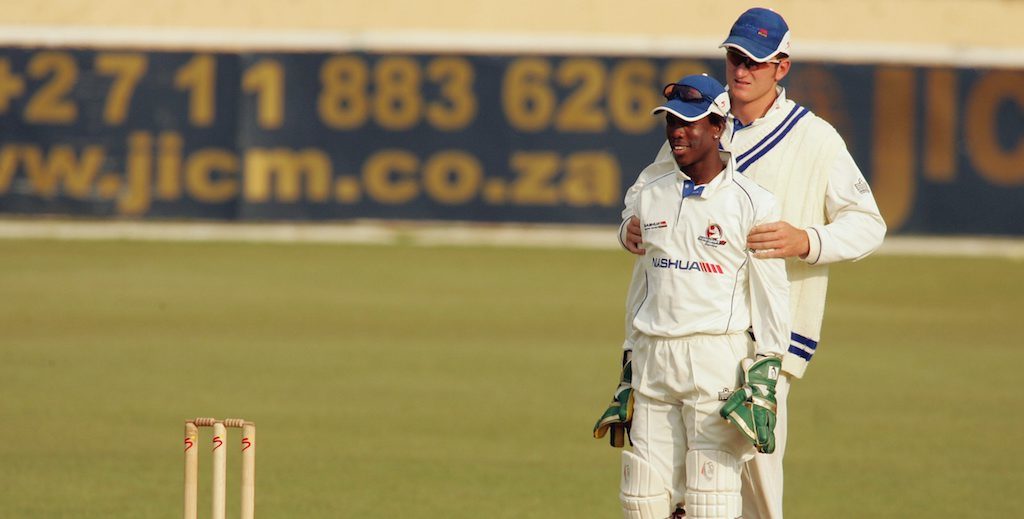Former Proteas wicketkeeper Thami Tsolekile told the Social Justice and Nation Building hearings on Monday that the former Proteas captain, Graeme Smith, did not want him playing in his team.
Tsolekile played three Tests for South Africa in 2004, but believes Smith had a direct impact on his international career.
“Talking from experience, I can tell you, Mr Smith never wanted me in that [South African] set-up.”
Tsolekile touched on the two-Test series against New Zealand in January 2013, where he’d been promised by Andrew Hudson that he would play. Mark Boucher had suffered a career-ending eye injury and Tsolekile had flown to England to cover for him.
“Andrew Hudson came to me and said I would definitely play against New Zealand. The night before the game, Hudson called me and in his own words said that Graeme Smith didn’t want me in his team.”
However, it was AB De Villiers that kept wicket in that series.
“AB only kept when I was there [challenging for a spot in the Test side], he didn’t want to keep when Boucher was keeper, he wanted to keep when I was there. You could see what was happening. The most disappointing thing was, there were guys, who were convenors – Linda Zondi [convenor of selectors], a black guy – who didn’t say anything.”
Tsolekile said he did not understand why Smith did not want him to play.
“Graeme Smith was a great captain of our country. In my opinion, that guy was given too much power by CSA and his teammates. Graeme Smith was never a close friend of mine, we were teammates. I’ve never had personal issues with him. I was his captain [U19] and I also played against him [domestically]. I can’t recall any incident with him, which is why I want to find out. ‘What have I done to this guy?’”
Tsolekile said he became so disillusioned in the Proteas camp he would ask permission to leave tours early. He says he never travelled home with the team.
“Every time I went on tour – the only way I could show my frustration was to tell Dr [Mohammad] Moosajee – then the team manager – ‘We’ve got a few more days to go home, wait until the last game is played, the team gets selected’, and then I asked to leave. I never, ever travelled back with the South African team. Never, ever.
“England in 2012, the same; I’d wait until the team was picked, and with a few days left I would fly back alone. In Australia [later that year] I did the same. I was trying to pass a message to them that I wasn’t happy in that environment, something needs to be done.”
Tsolekile said his experiences with the national team left a bitter taste in his mouth.
“I developed an attitude towards my white counterparts … there was always a bitterness in me, which was a form of defence. This had a devastating effect on my life in and out of the team. Still today, I experience flashbacks of bad memories, as a result of being a victim of biasness, discrimination and racism. I had to go to anger management, as I was angry and frustrated at the situation that I experienced.”







